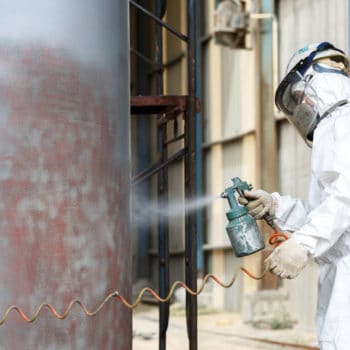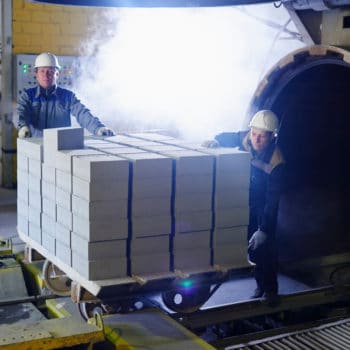Why We Love It
-
$41,490Potential Avg. Salary
-
-5.3%Job Growth Rate
-
Skill-Based WorkCareer Attribute
-
Work With Your HandsCareer Attribute
Embalmers are the individuals responsible for preparing bodies for funeral services. They clean bodies, drain blood, and replace blood with embalming fluid and other preservative chemicals that prevent deterioration before funeral services. They also apply makeup to bodies, style hair, and hide injuries.
Recommended Schools
What is an Embalmer?
The following job responsibilities are common for individuals in embalmer roles:
- Evaluate the needs of deceased individuals by observing dead bodies and collecting information on the funeral plans
- Take steps to preserve bodies for viewing services by draining blood and replacing it with embalming fluid and other preservative chemicals
- Use detailed reconstructive techniques to present bodies who’ve suffered from devastating injuries without upsetting visitors and family members
- Prepare bodies for display by applying clothing and makeup and styling hair to make bodies look natural
- Adhere to stringent safety guidelines to prevent the spread of infectious disease, and properly dispose of bodily fluids
A Day in the Life
Embalmers work for funeral homes and are the individuals responsible for allowing the friends and family to get one final look at deceased individuals before burial. Because human bodies deteriorate quickly after death, embalmers are required to help preserve bodies, prevent early deterioration, and make bodies presentable for viewings. To do this, they drain all blood and bodily fluids and replace blood with embalming fluid—a preservative that prevents rapid deterioration.
After the embalming process, embalmers become artists who work to make dead bodies appear natural-looking and serene. Sometimes, this is just a matter of applying clothing and makeup and styling the hair of the deceased. Other times, major reconstruction may need to occur. If the deceased was killed by a gun or in a severe accident, the embalmer may need to work to reconstruct bone formations or skin tissues to present the body in a way that isn’t disturbing to friends and family.
Because embalmers work with blood and other bodily fluids, they must adhere to strict safety protocols. They must follow stringent guidelines for the disposal of fluids removed from bodies, and they must ensure that they take preventative measures when handling fluids to prevent exposure. Additionally, they must ensure that embalming fluid and other dangerous chemicals are properly stored and secure.
Typical Work Schedule
Embalmers are usually paid for full-time work but may work less or more than 40-hours per week, depending on volume of funeral home clients. Usually, they’re required to be on call and may be called in to work any time of day, any day of the week, and even on holidays. When a body is received, the embalming process must occur quickly to prevent decay, so embalmers may need to work irregular hours to fulfill their responsibilities.
Typical Employers
Most embalmers are employed to work for funeral homes. Some may also operate their own small funeral homes and serve as both embalmer and funeral director.
Recommended Schools
How To Become an Embalmer
To become an embalmer, you must earn a mortuary science degree from an accredited mortuary science school. Most of these programs result in associate’s degrees, though bachelor’s degree programs may also be available. Typically, an associate’s degree is an acceptable level of education for securing a job as an embalmer. In college, you’ll learn how to perform all roles related to funeral services, taking courses in embalming, body positioning and restoration, and proper disposal methods.
After graduating from a mortuary science degree program, aspiring embalmers must then enter into an apprenticeship program where they gain practical embalming experience by working under an experienced embalmer. This apprenticeship program usually lasts between one and three years. Most mortuary science schools will work to help students find apprenticeships after graduation, and students can also seek apprenticeships through a local embalmers association or organization.
All states require embalmers to be licensed in order to work in their field. Licensing requirements vary by state, but generally require completion of an associate’s degree and at least one year of experience as an embalmer’s apprentice. After becoming licensed, you’ll be able to find work with local funeral homes as an embalmer. To maintain your license throughout your career, continuing education may be required so you can stay up to date on all new techniques used in your field of work.
Embalmer Salary Data
We’ve provided you the following to learn more about this career. The salary and growth data on this page comes from recently published Bureau of Labor Statistics data while the recommendations and editorial content are based on our research.
National Anual Salary
Low Range
$29,850Average
$41,490High Range
$61,210National Hourly Wage
Low Range
$14/hrAverage
$20/hrHigh Range
$29/hrHow do Embalmer salaries stack up to other jobs across the country? Based on the latest jobs data nationwide, Embalmer's can make an average annual salary of $41,490, or $20 per hour. This makes it an Above Average Salary. On the lower end, they can make $29,850 or $14 per hour, perhaps when just starting out or based on the state you live in.
Salary Rankings And Facts
#502 Nationally for All Careers
Programs and Degrees
Here are the most common degrees for becoming an Embalmer. a is usually recommended and specifically a degree or coursework that prepares you for the particular field, see below.
Highest Education Among Embalmers
- 0.4% Doctorate
- 4.9% Masters
- 16% Bachelors
- 19.1% Associates
- 32.8% College
- 22.6% High School
- 4.1% Less than High School
Job Growth Projections and Forecast
2014 Total Jobs
3,8002024 Est. Jobs
3,600Job Growth Rate
-5.3%Est. New Jobs
-200How does Embalmer job growth stack up to other jobs across the country? By 2024, there will be a change of -200 jobs for a total of 3,600 people employed in the career nationwide. This is a -5.3% change in growth over the next ten years, giving the career a growth rate nationwide of Below Average.
Growth Rankings And Facts
#701 Nationally for All Careers
What Companies Employ The Most Embalmers
| Industry | Current Jobs | New Jobs Needed | % Increase |
|---|---|---|---|
| Death care services | 3,600 | -300 | 0% |
| Self-employed workers | 100 | --- | --- |
| --- | --- | --- |













